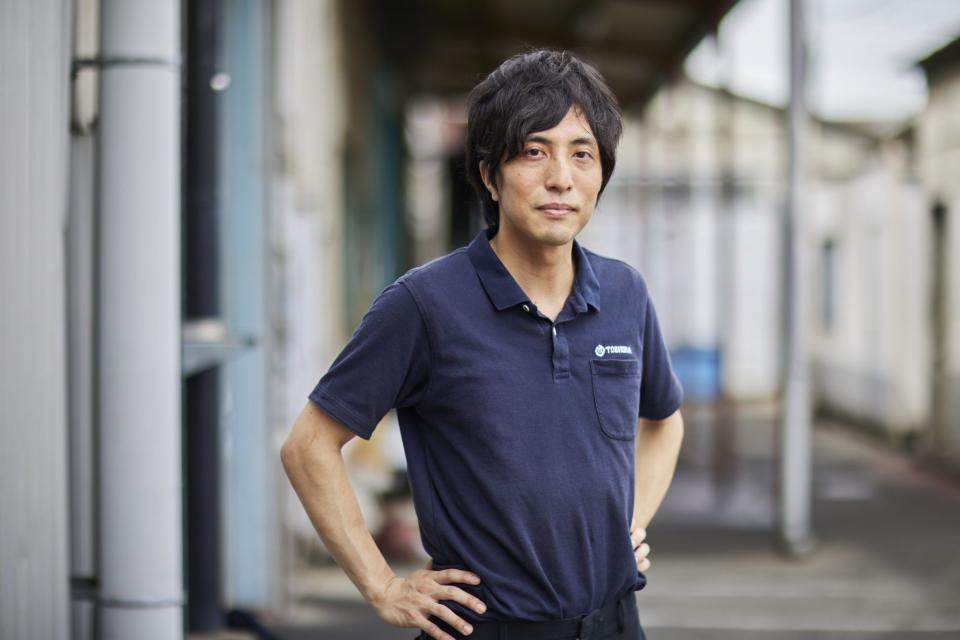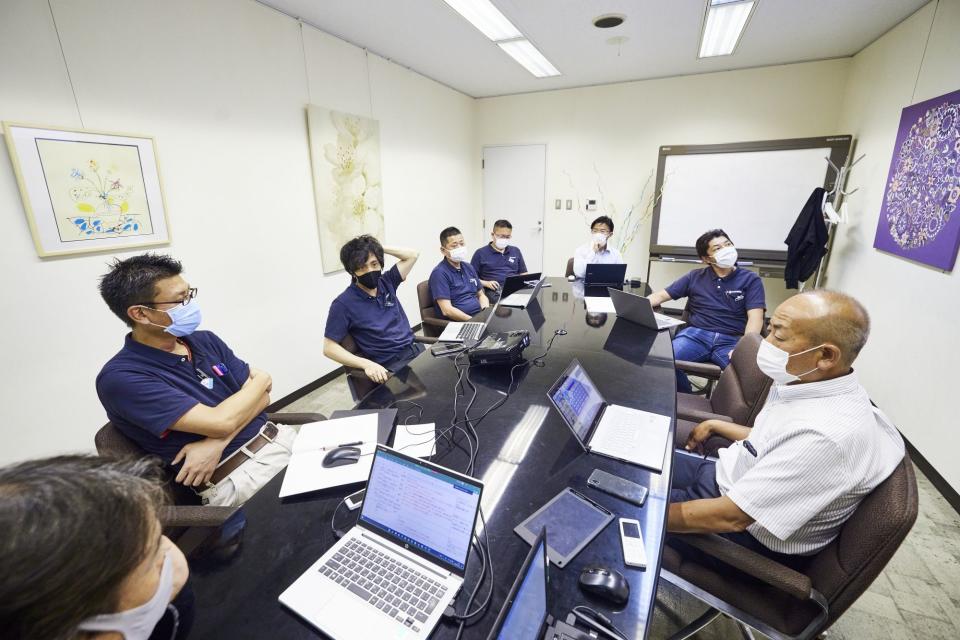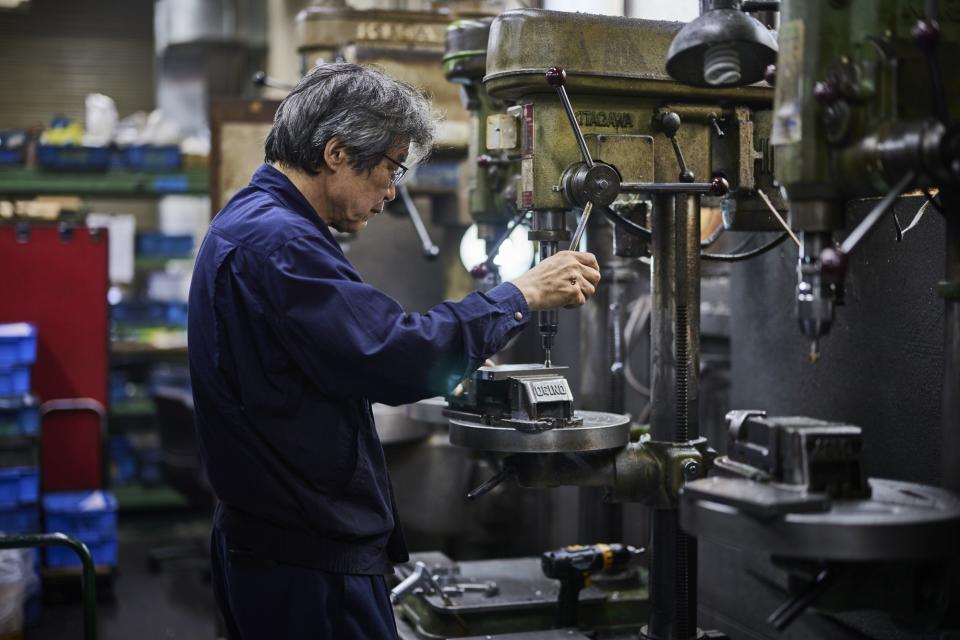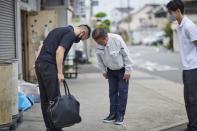A Startup Offers Japan's Aging CEOs a Worry-Free Succession Plan
(Bloomberg) -- Like most aging chief executives in Japan, Sadatsugu Kishida had a list of demands before handing over the reins of his company.
Most Read from Bloomberg
Lukoil Chairman Ravil Maganov Dies After Falling From Hospital Window
Putin Brings China and India to Russia for War Games Defying US
Hong Kong Officials Target End to Hotel Quarantine in November
Jeremy Grantham Warns ‘Super Bubble’ in Stocks Has Yet to Burst
“No job cuts. No company name change. You must understand and inherit my philosophy in serving customers,” the 77-year-old said. Having dictated every single decision at Kyowa Seiko for four decades, Kishida said he couldn’t think of anyone who could take over his 30-person metal-processing business on the outskirts of Osaka. Private equity funds would resell the company, outside executives would prioritize their own firms, and his employees and family were not ready, he said.
Last month, Next Generation Technology Group convinced Kishida to let go. The Tokyo-based firm was the only suitor who promised to protect every job, keep Kyowa Seiko’s name and honor its commitments to longtime customers like Kyocera Corp. “My bank suggested I meet with them, and I thought they were all going to be elite, college graduate snobs. But I was wrong,” said Kishida, who accepted NGTG’s bid and didn’t even consider other offers on the table. “It was love at first sight.”
Founded in 2018 by a group of bankers and consultants with little exposure to the factory floor, NGTG’s revenue has grown from zero to 8 billion yen ($59 million) by acquiring small but established manufacturers struggling to find successors in the world’s third-largest economy. NGTG aims to pick up the pace of its acquisitions and go public in 2024, to help boost its enterprise value and eventually buy bigger companies on the scale of industrial technology group Toshiba Corp., said its chief executive officer, Eiichi Arai.
The list of potential acquisitions is long. Every year, tens of thousands of businesses that help support Japan’s deep industrial base close shop, unable to cope when company heads like Kishida retire or fall ill. More than 85% of the 44,377 small-and medium-sized firms that dissolved last year were run by executives 60-years-old or older, while 57% of the total were profitable, according to data company Tokyo Shoko Research.
NGTG styles itself after US conglomerate Danaher Corp., which buys up businesses with standalone, niche expertise to grow. Arai is quick to talk about how the company differs from private equity funds decried as “vultures” in Japan or deal-advisory boutiques like Nihon M&A Center Holdings Inc. that broker deals for aging CEOs, noting it buys and holds companies and operates with a light touch.
“Business owners don’t want to sell company stock to PE funds, and I decided that business model was too tough in Japan,” said Arai, 39, who helped oversee the state-backed Innovation Network Corp. of Japan’s acquisitions of companies including UniCarriers Corp., which was later sold to Mitsubishi Heavy Industries. Instead, Arai is finding low-hanging fruit among presidents prioritizing employees and clients over price.
With small- and medium-sized enterprises employing 70% of Japan’s workforce, the disappearance of companies without succession plans continues to eat away at the economy. Small companies like Kyowa Seiko, which cuts steel parts used in chipmaking equipment, are the bedrock for the country’s manufacturers, which in turn supply semiconductors, materials and components to the world’s biggest companies.
“Owners of such businesses are too busy to think about succession, and when they do, it’s often too late,” Shinya Matsunaga of Tokyo Shoko Research said. NGTG will not be the only answer to the problem, but “when you think of how demanding many aging company heads are, a company like NGTG offers valuable incentives that will coax executives into passing on the baton.”
Succession issues fester, unresolved, because most of the time only the company chief has a full grasp of business operations. Decisions are rarely made by committee, with the company head usually the one talking to clients, issuing estimates, negotiating prices with suppliers and making sure orders are met on time.
A case in point is Toshima Manufacturing Co., where nobody besides the former owner knew how much revenue each product earned when NGTG bought the thin-film materials maker in 2019. Compensation at the company, which supplies made-to-order materials used in batteries and semiconductors, was haphazard and inconsistent, Arai said.
Arai rented an apartment close to Toshima’s office in Saitama, just outside Tokyo, and spent two years introducing performance-based pay and online tools including Slack, so that employees could better communicate with one another and monitor the company finances. In January, Arai handed the CEO position to longtime Toshima employee Tsugio Saito.
“I was worried because Arai-san has no background in manufacturing,” said Saito, who was one of the company’s three board members just prior to the sale. Arai won his confidence by dressing the same way as the workers every day and committing time to understanding client requests. Starting with limited funds, NGTG has so far bought six companies, all with growing revenues. It plans to buy three to five more companies over the next two years, said Arai.
Arai says basic fixes are usually all that is needed to solve even the most difficult issues at small companies, such as that of finding and securing talent. Many of the companies he’s visited have not implemented even the simplest solutions, including creating an attractive website, following up on candidates expressing interest and increasing compensation for key positions, he said.
“We only buy good companies,” Arai said. “All that is needed is to spot inefficiencies and fix them.”
For Kyowa Seiko, Arai plans to delegate more tasks to employees by training workers to negotiate with customers and draw up new component blueprints according to their specifications. Arai will also try to create an internet presence for the manufacturer, which has no website and relies heavily on handwritten memos, faxes and phones, as former CEO Kishida has never used email. Kishida will provide advice, so that deliveries continue to be made on time during the transition.
“There will be no overhaul,” said Kishida. “The new management will protect what we’ve built.”
Most Read from Bloomberg Businessweek
Women Who Stay Single and Don’t Have Kids Are Getting Richer
The Secret Sauce at Hot Chicken Takeover: Its Unique Workforce
Russia’s Conspiracy-Theory Factory Is Swaying a Brand-New Audience
A New Contaminant Found in Popular Drugs Could Cost Big Pharma Millions
©2022 Bloomberg L.P.

 Yahoo Finance
Yahoo Finance 









